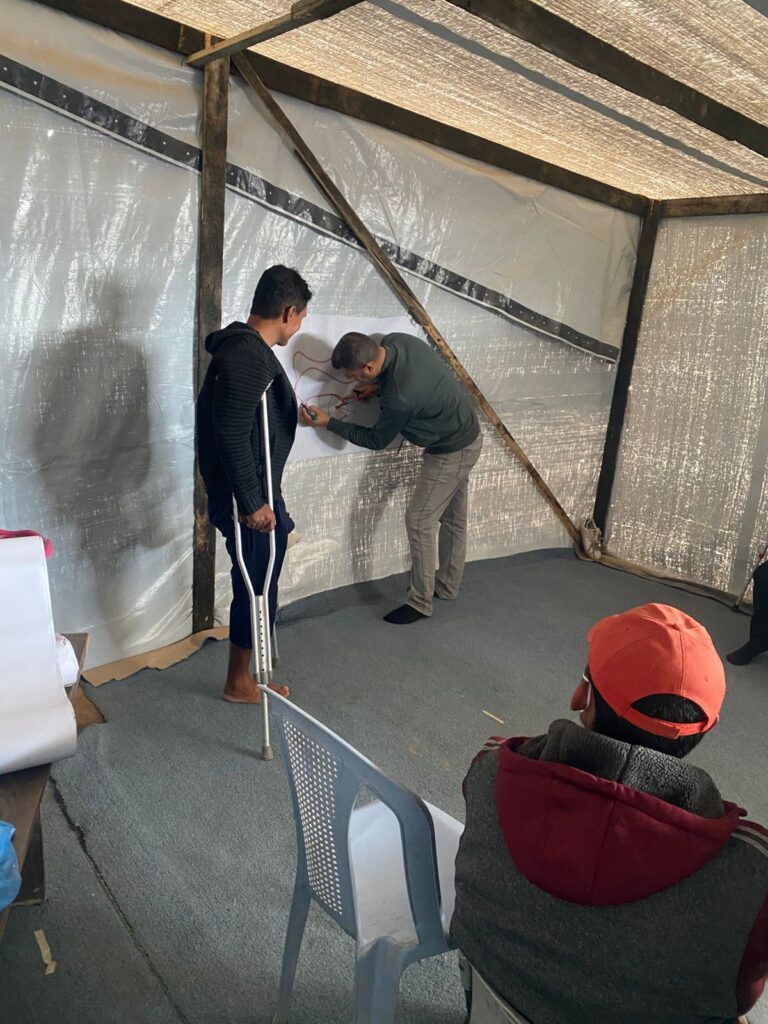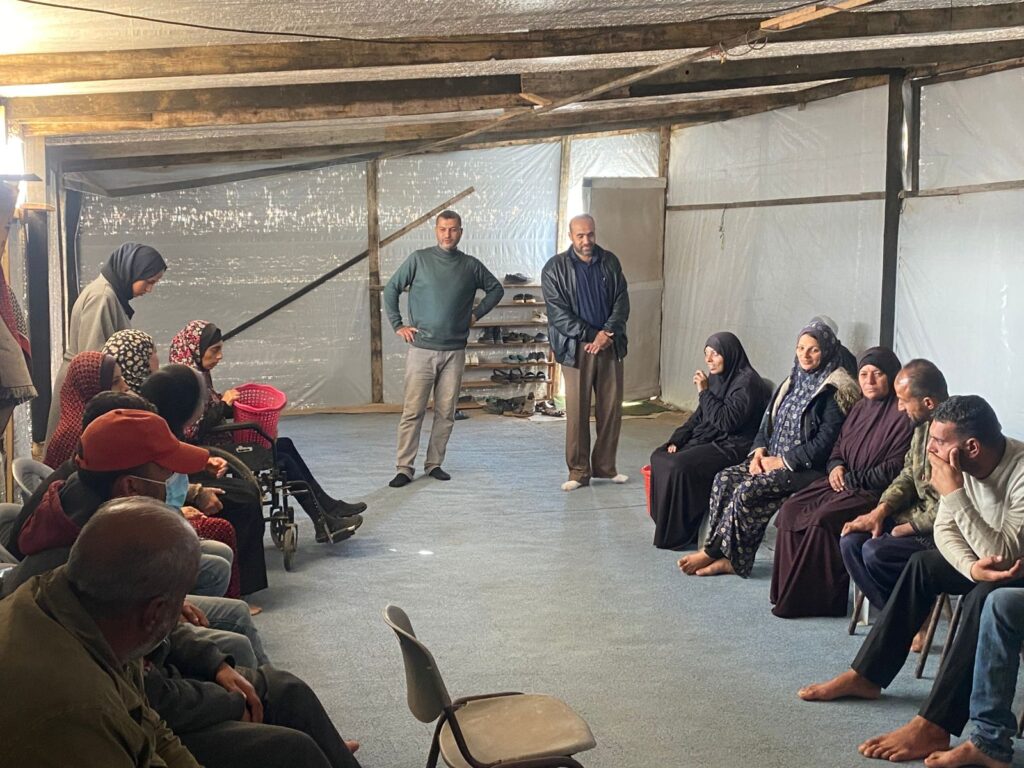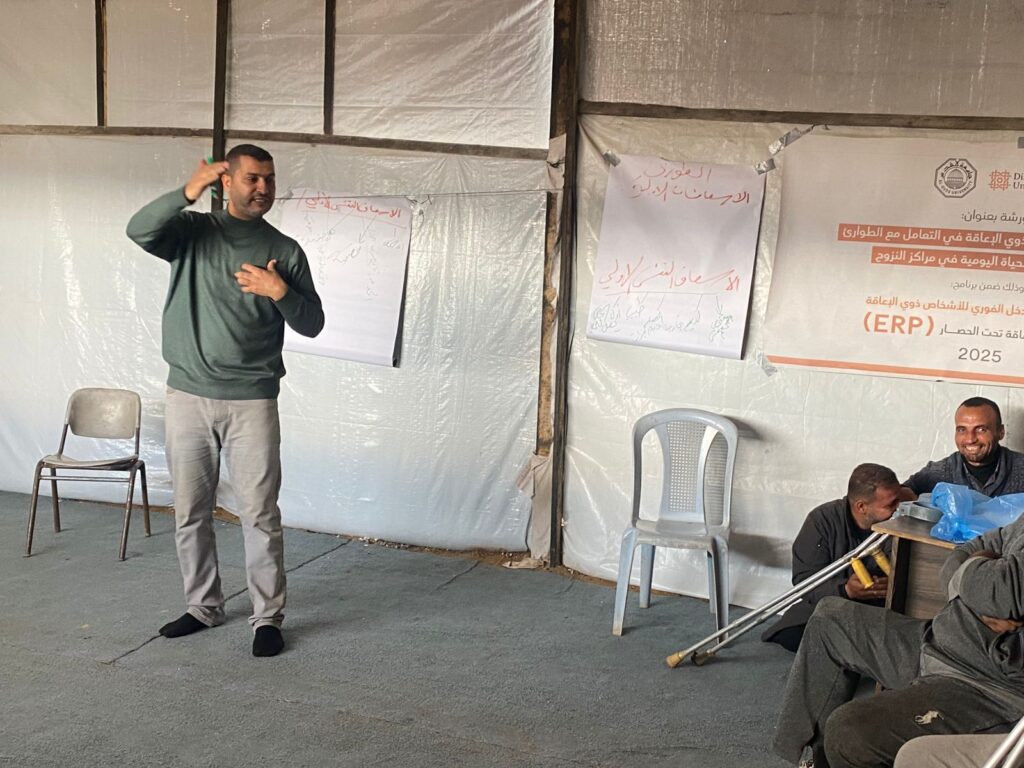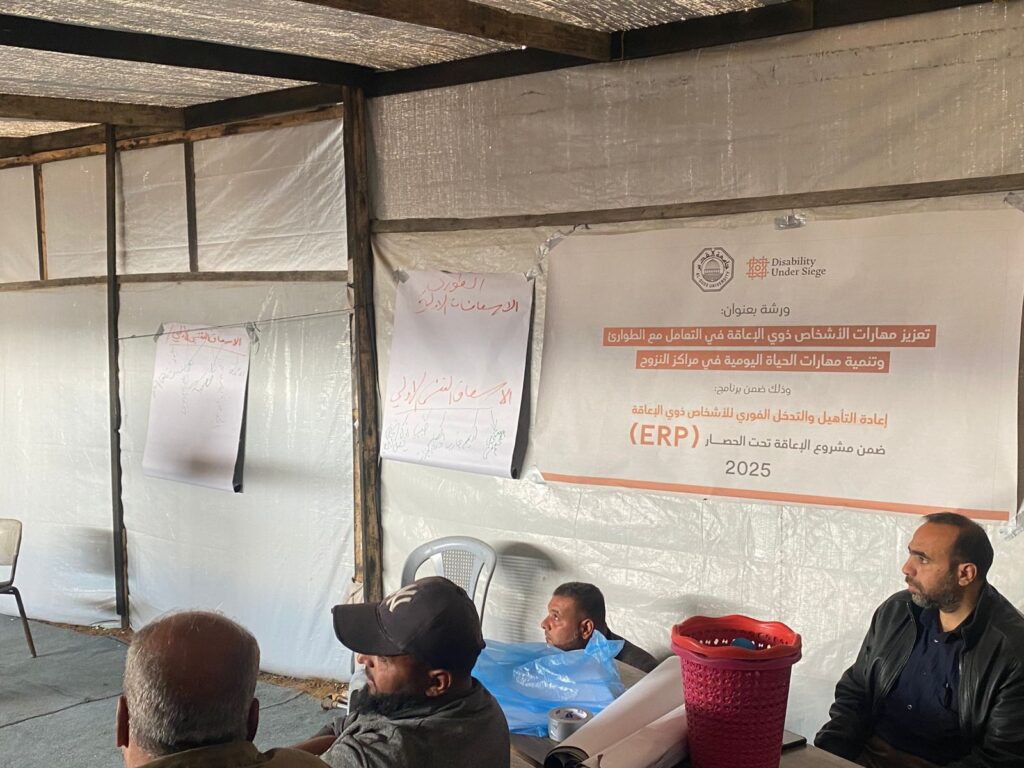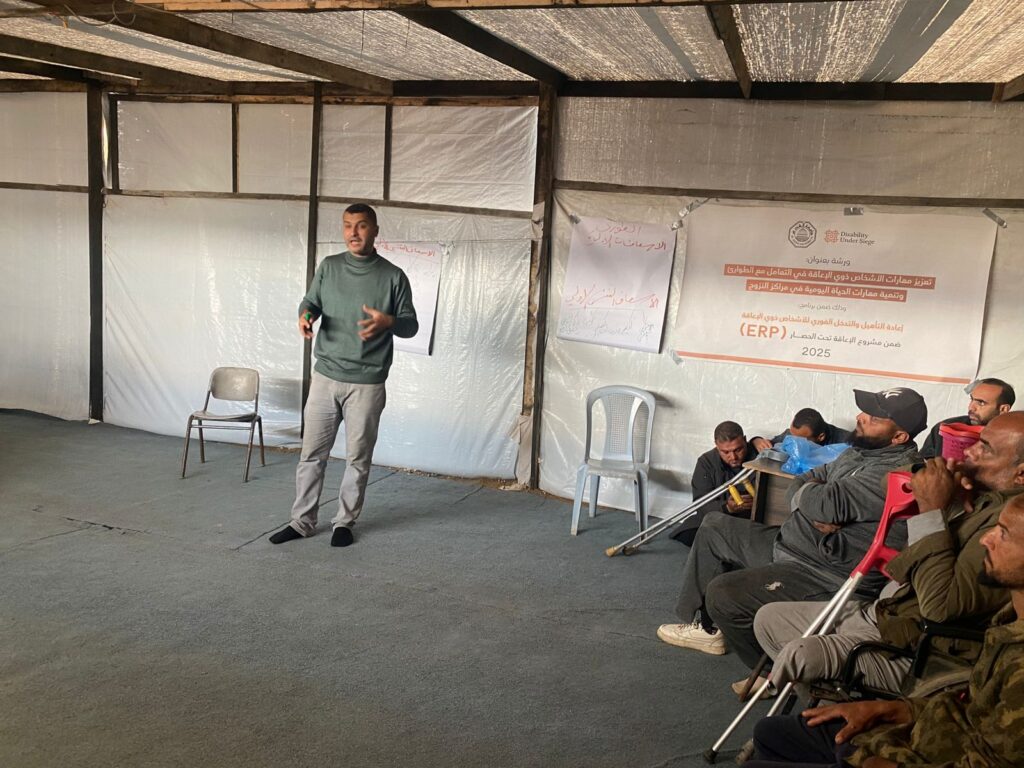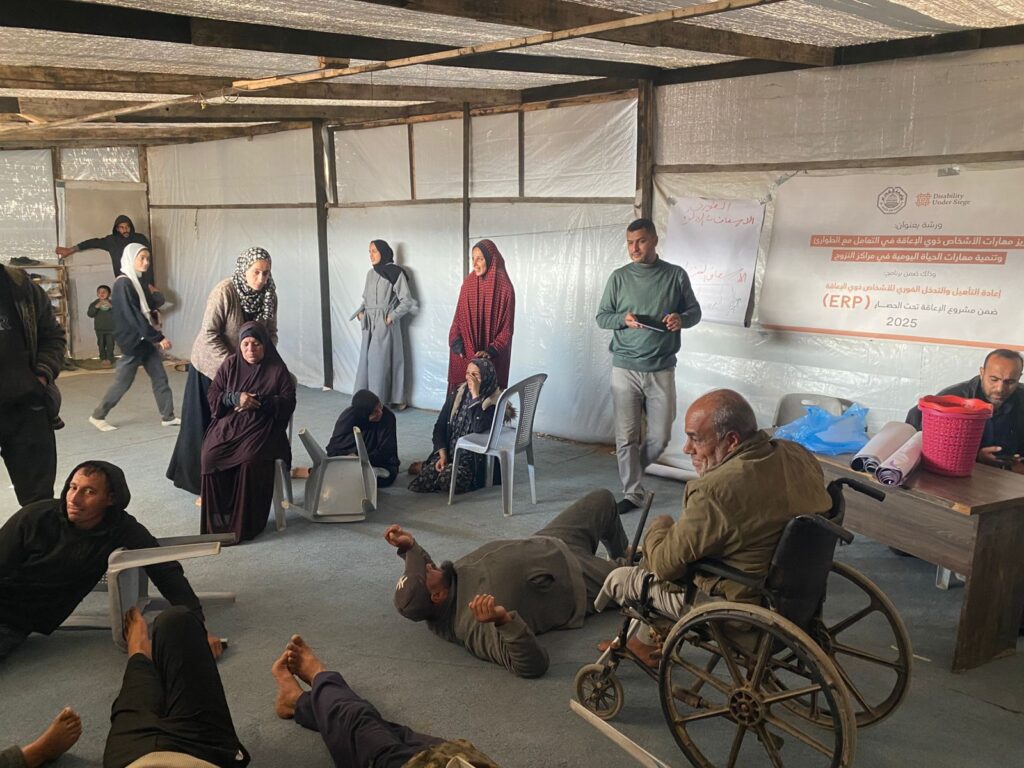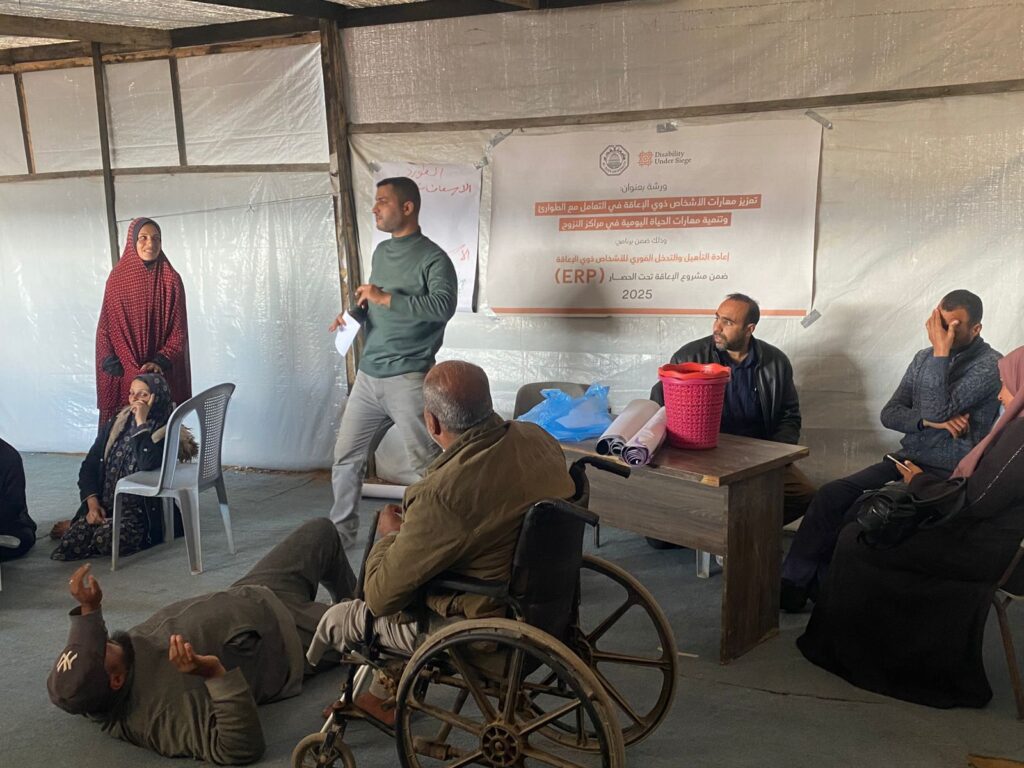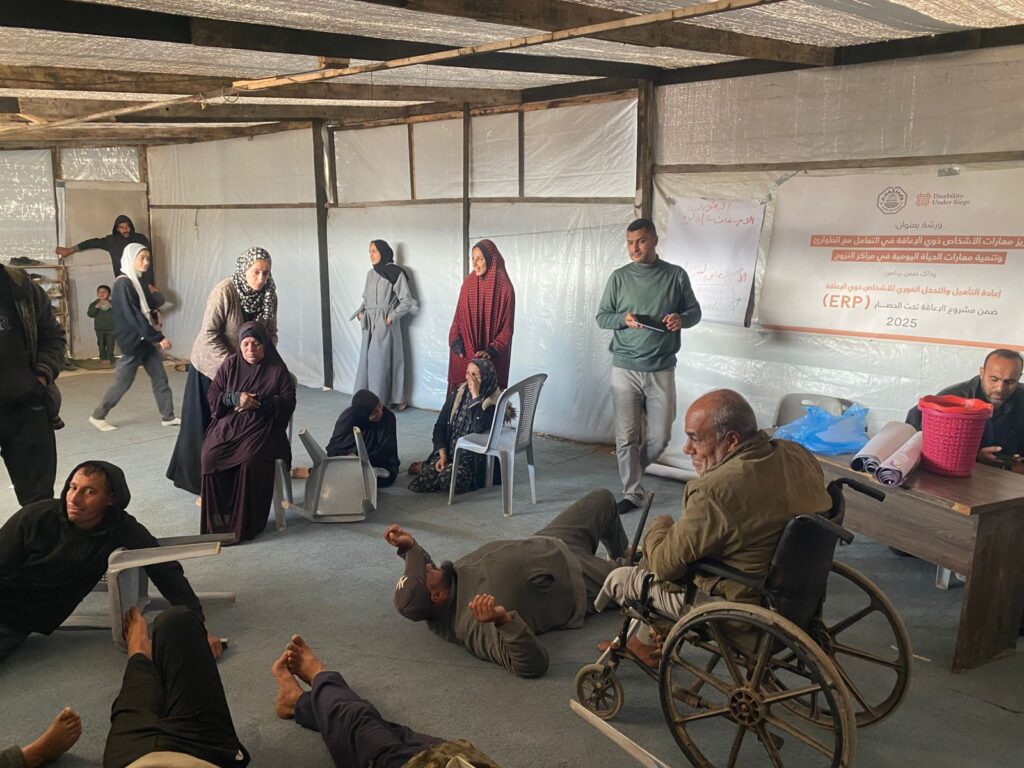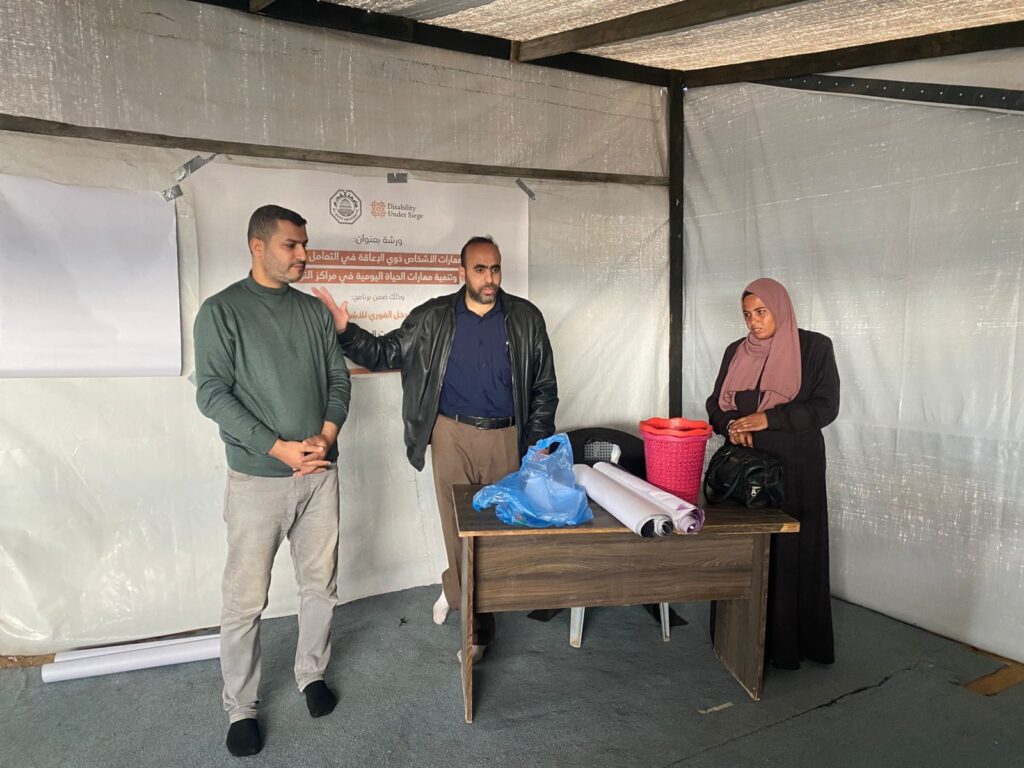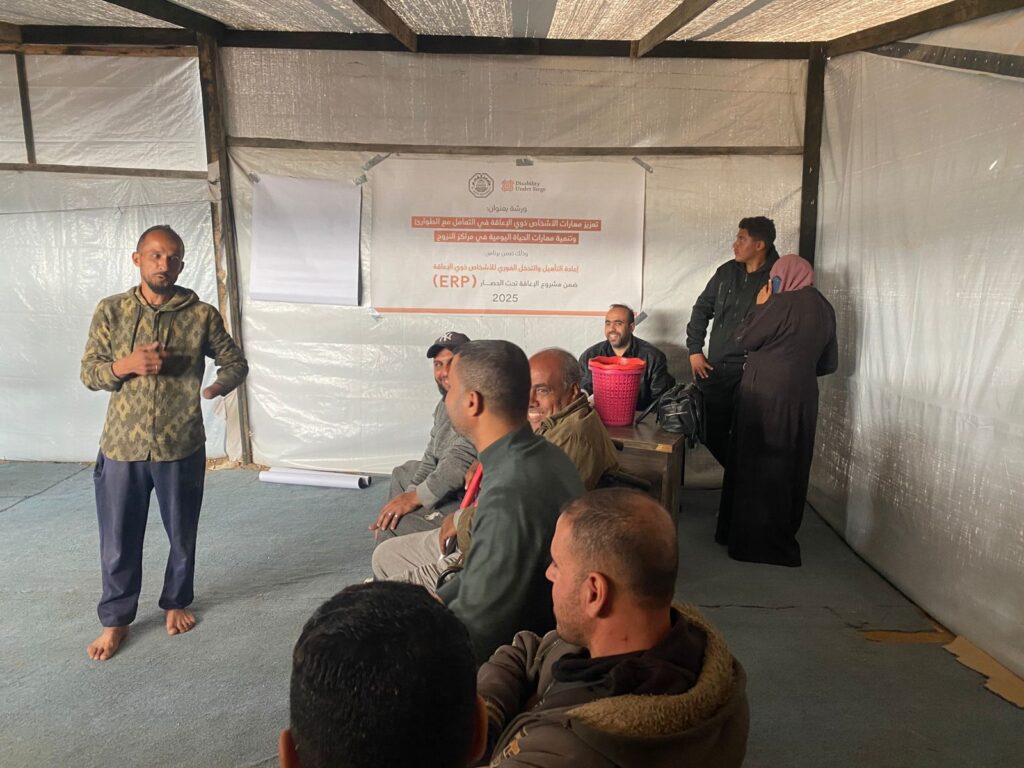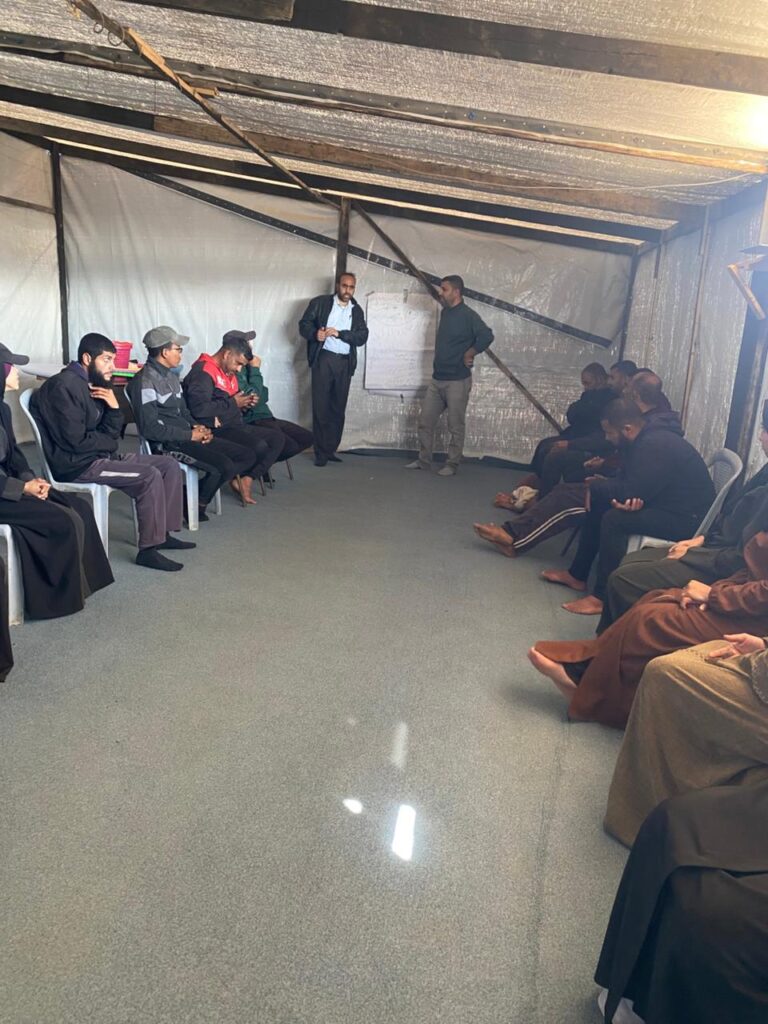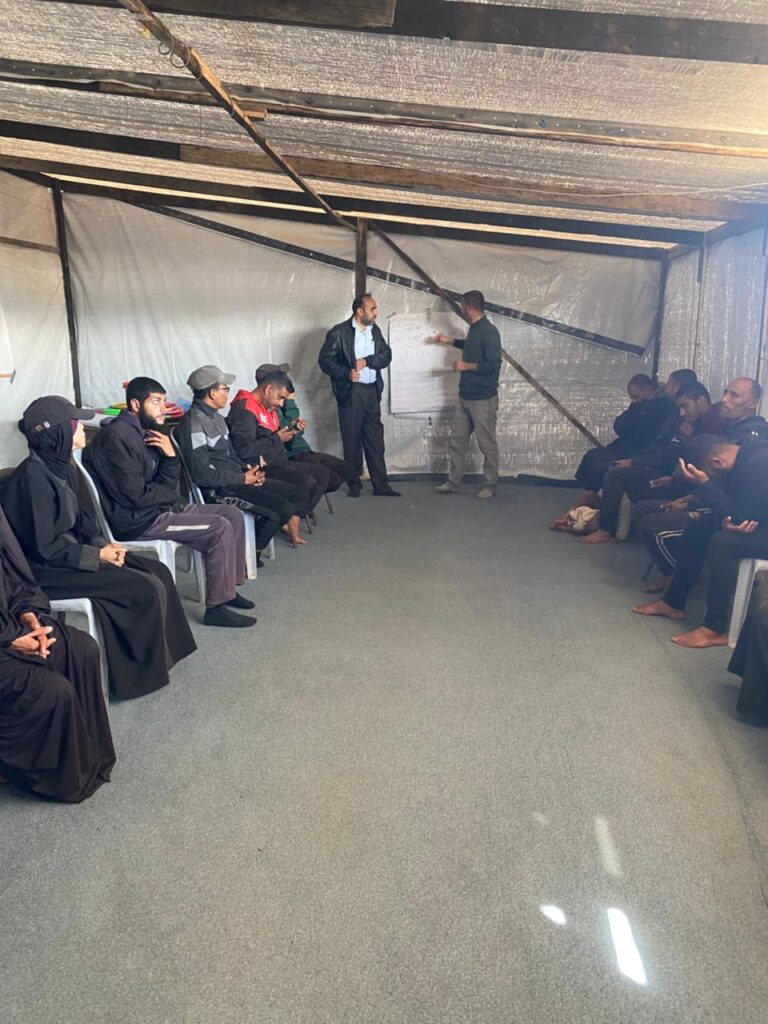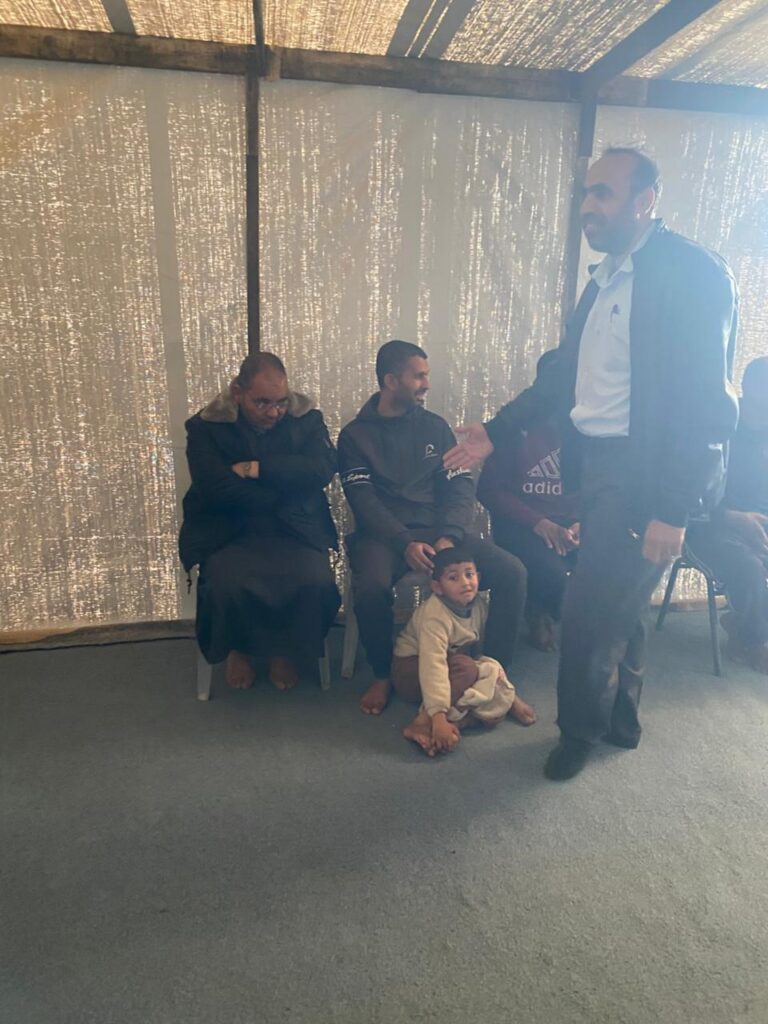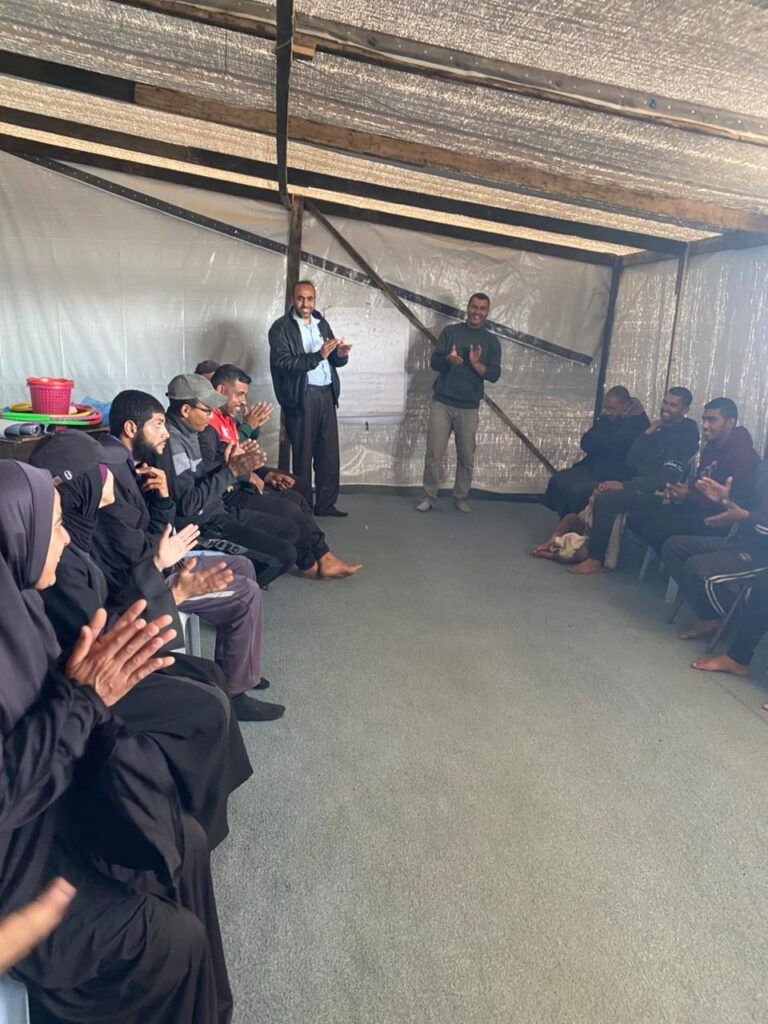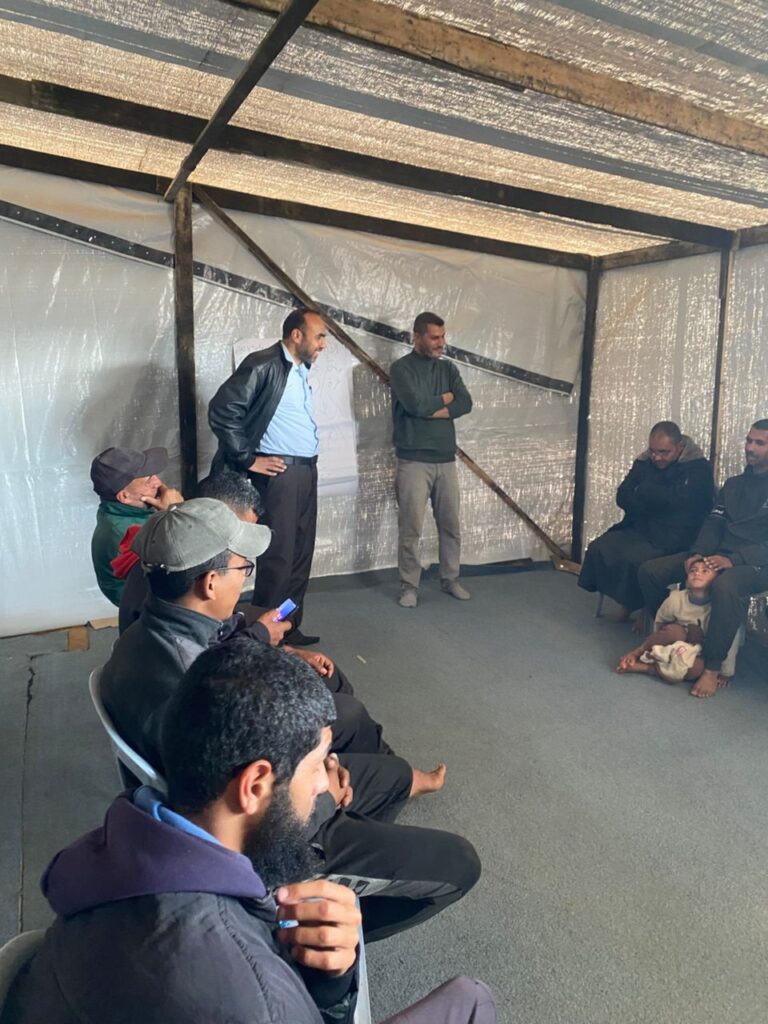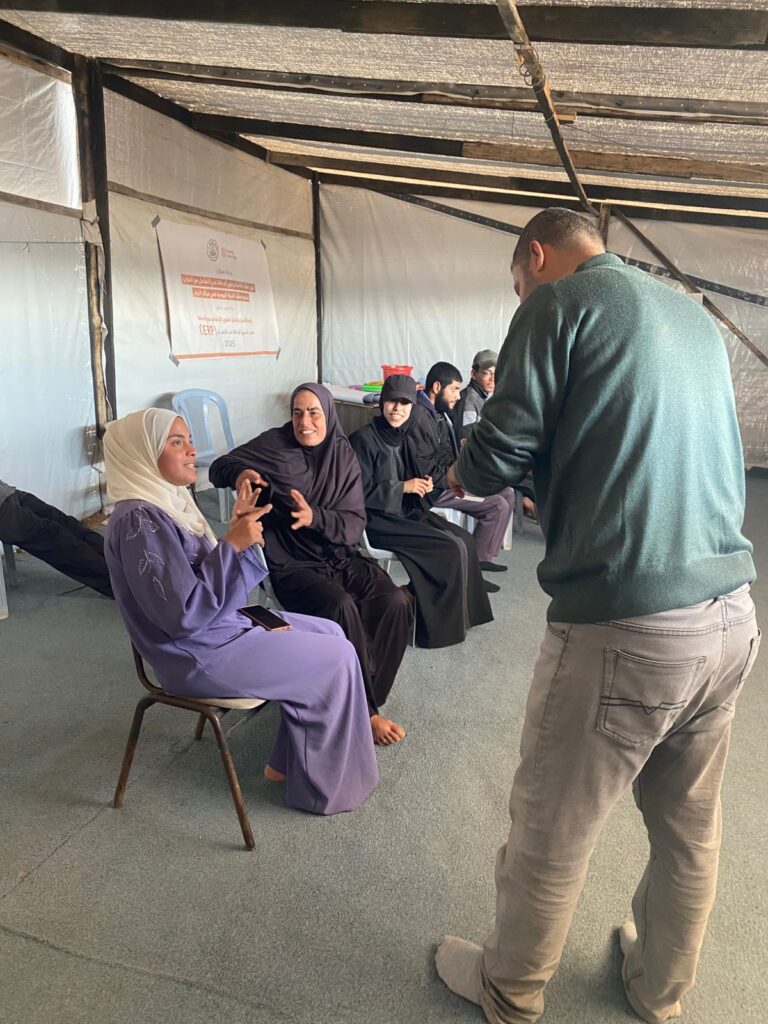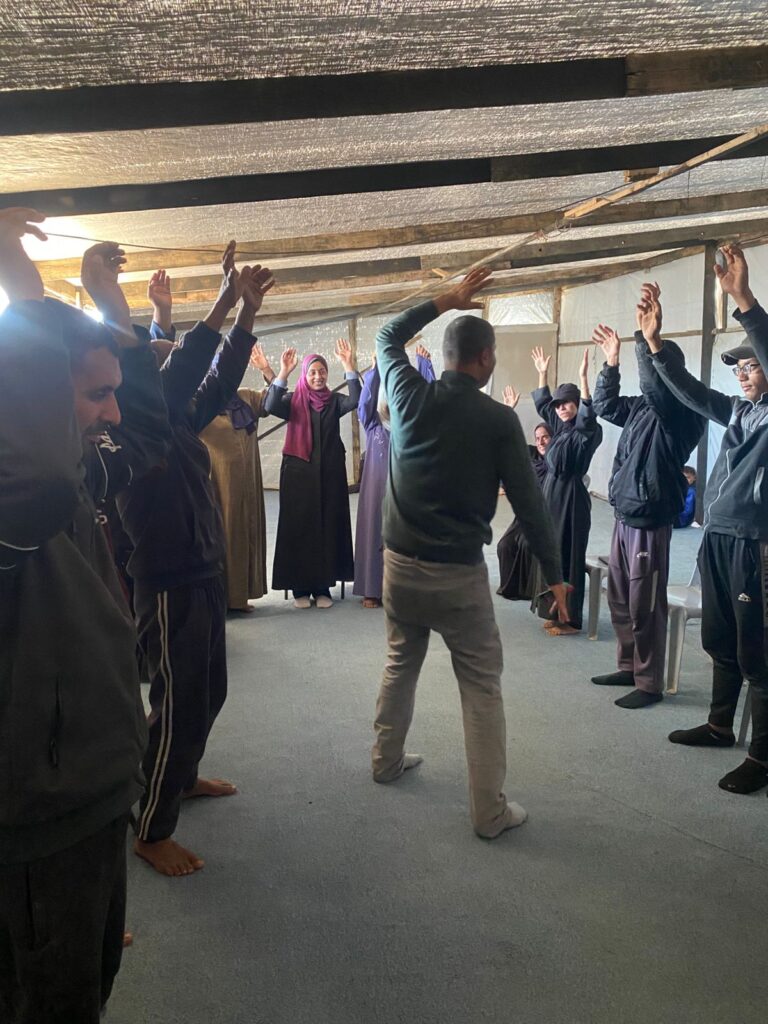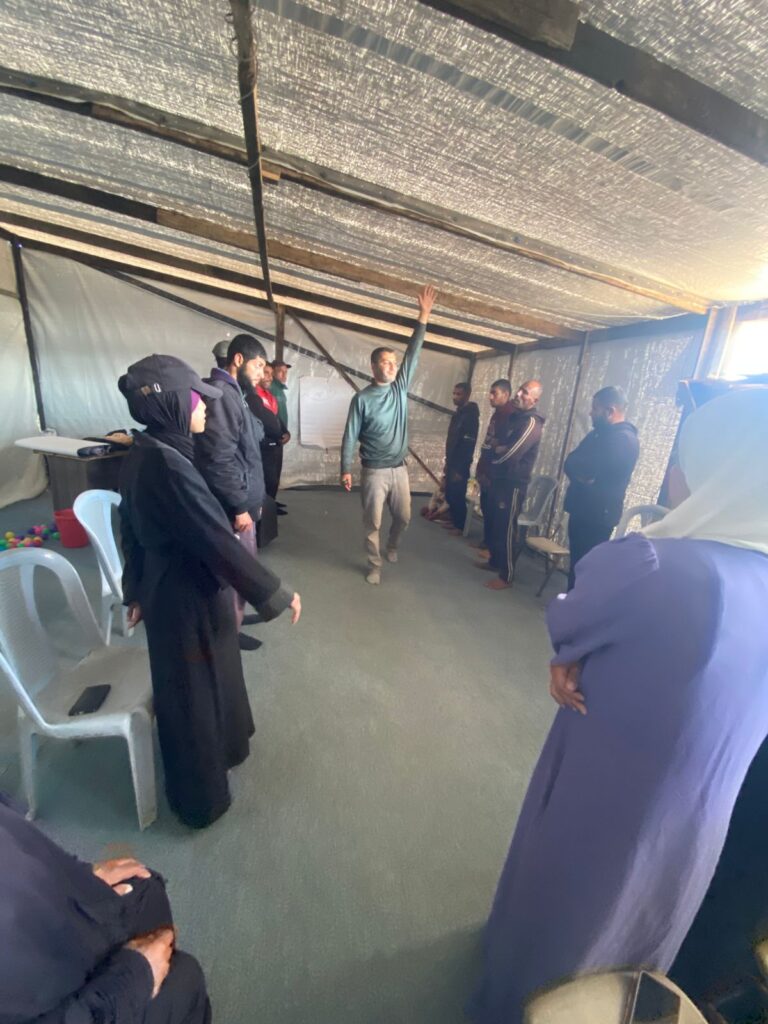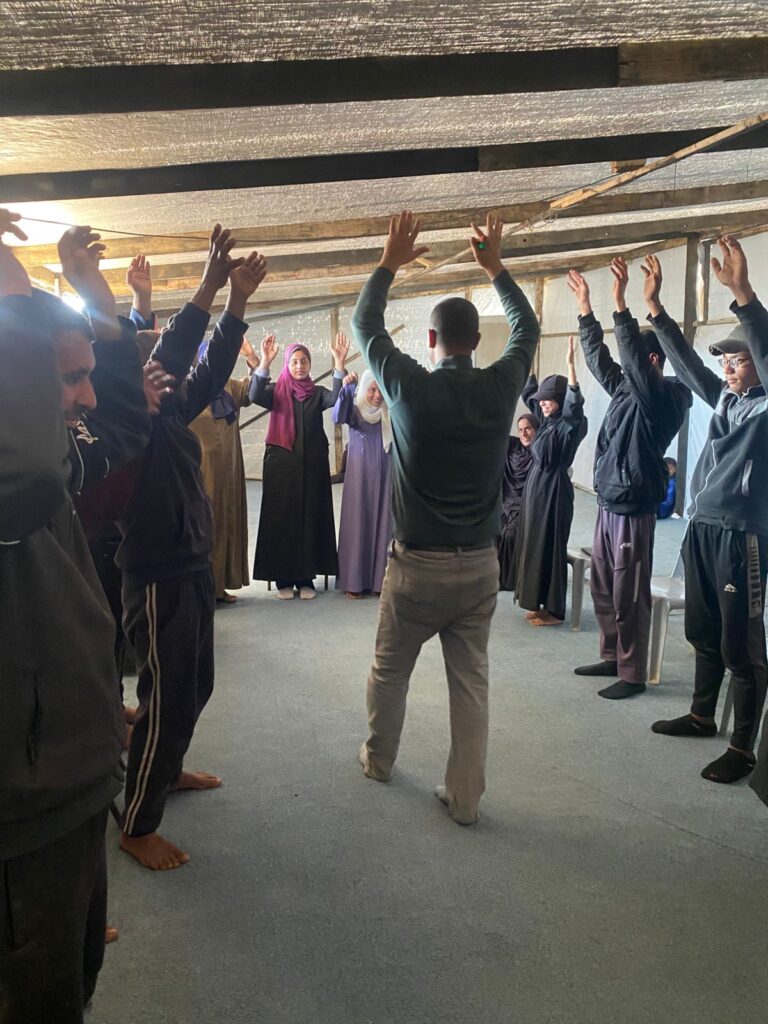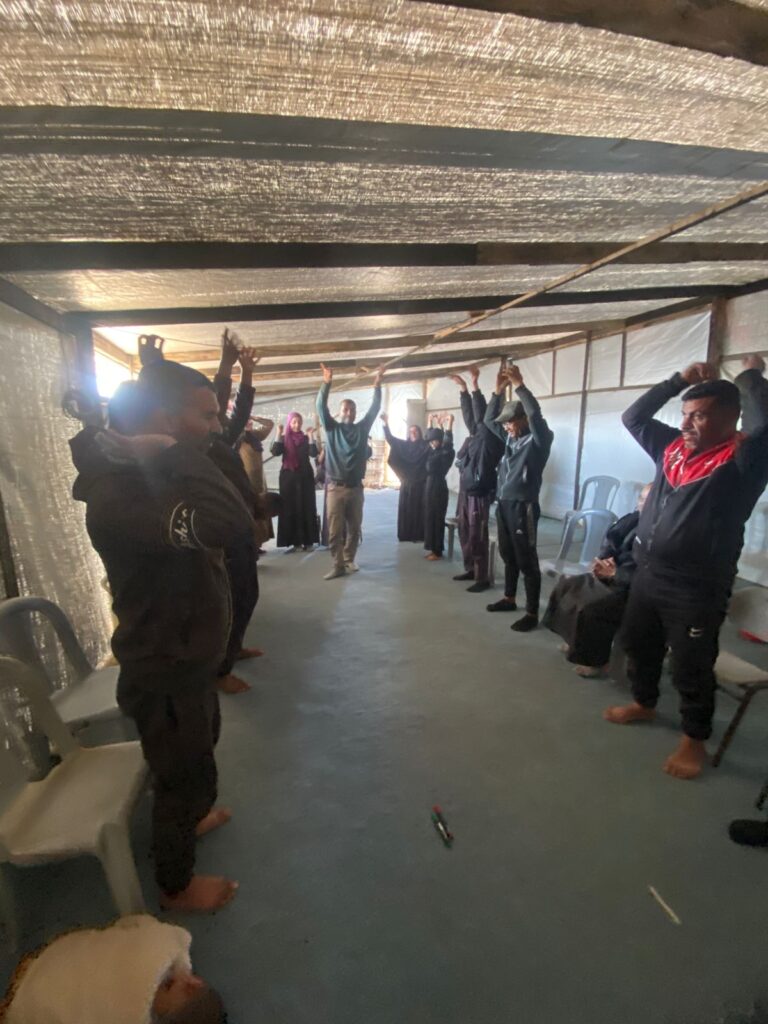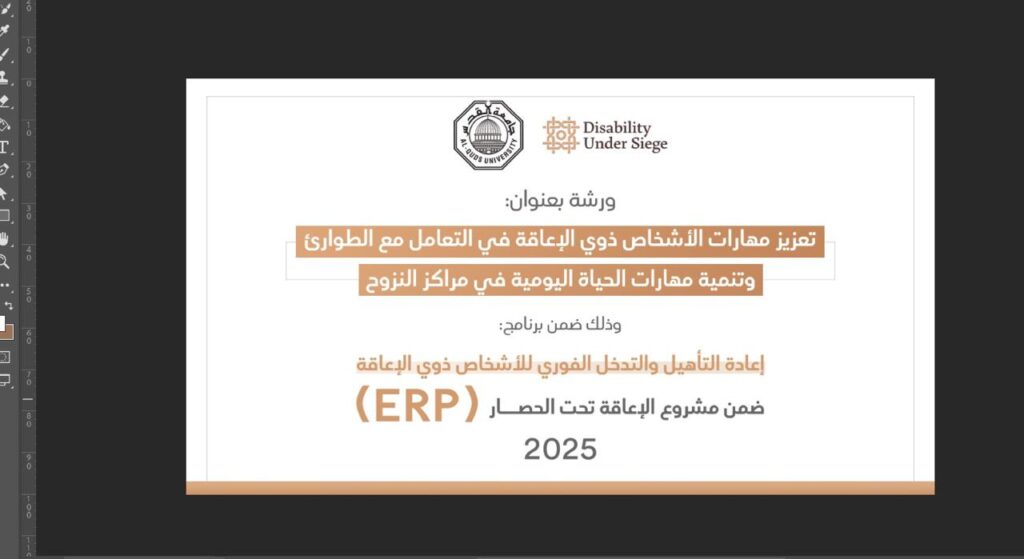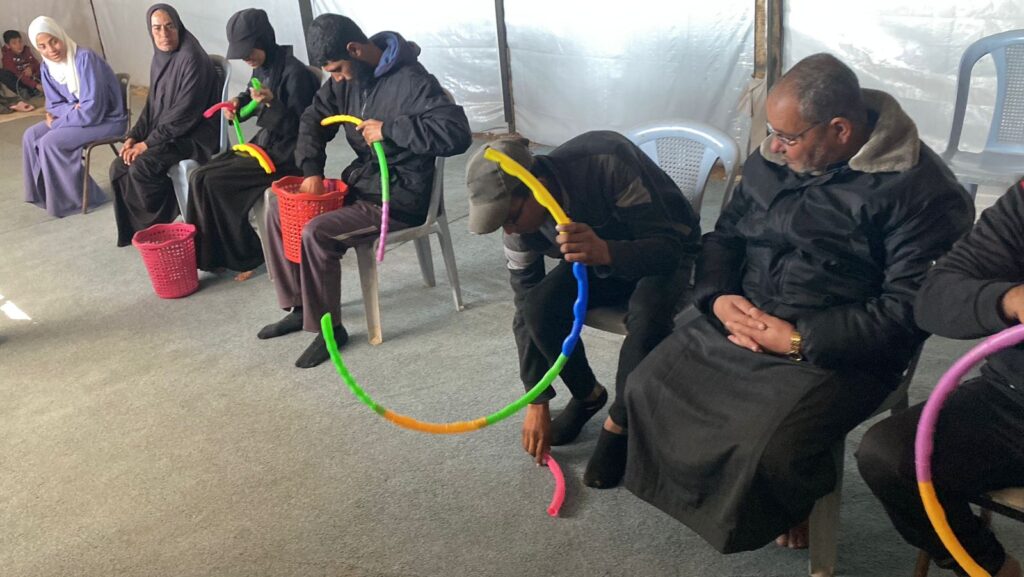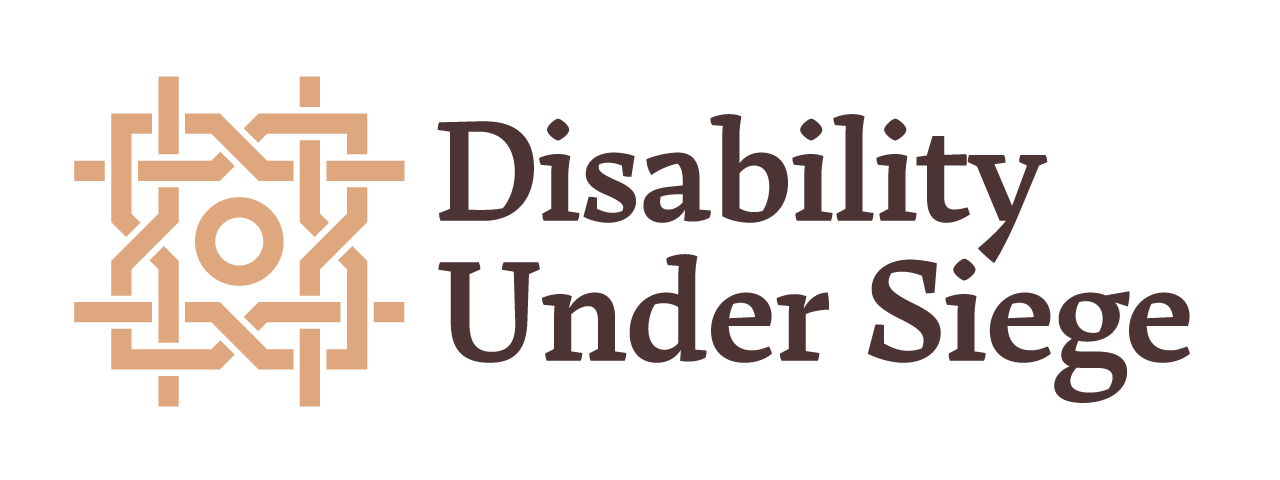Mainstreaming Strategies and the Application Mechanisms in Higher Education Institutions
Project Outline
This research project aims at studying the mainstreaming of people with disability in higher education institutions, and identifying strategies followed by higher education institutions for educational quality and mainstreaming facilities for different types of people with disability. Moreover, the research addresses the extent to which mainstreaming strategies are implemented/adopted in higher education institutions, in order to safeguard the right to education for people with disability, and more particularly, contribution to setting educational policies and strategies in the Palestinian universities. This in turn will enhance the inclusion and participation of this category in work and study environments regardless of gender or disability status.
The research uses descriptive methodology and qualitative analysis to achieve its outputs through implementing the following proposed activities:
- Literature review of international and local laws for mainstreaming strategies
- Comparative analysis of international and local laws for mainstreaming strategies with respect to international standards.
- Conducting seminars and workshops about mainstreaming strategies of people with disability.
- Two focus groups of 8 to 10 persons: one including decision makers at universities and one including people with disabilities.
This project requires raising awareness in higher education institutions through conducting suitable studies and associated workshops.
Project Objectives
This research project aims at:
- Identifying mainstreaming strategies for people with disability in higher education institutions.
- Assessing the extent to which mainstreaming strategies are adopted by higher education institutions to safeguard the right to education for people with disability.
Research questions:
- What are mainstreaming strategies for people with disabilities that are adopted by higher education institutions?
- To what extent are higher education institutions implementing mainstreaming strategies to safeguard the right to education for people with disabilities?
Answering these questions requires building a research background about mainstreaming strategies for people with disabilities and implementation mechanisms of these strategies in higher education institutions in order to create an inclusive environment.
The objectives of this project are derived from the international law for people with disability, the article that states equal opportunities and power for decision making for qualified people regardless of their gender or disability status. It contributes to raising awareness of decision makers in higher education institutions about their duties towards persons with disabilities in addition to ensuring the rights and duties of persons with disability toward community institutions. This requires developing the capacities and competencies of people with disability as well as decision makers, in a way that guarantees self-determination for people with disability through developing and strengthening their skills according to their needs and priorities.
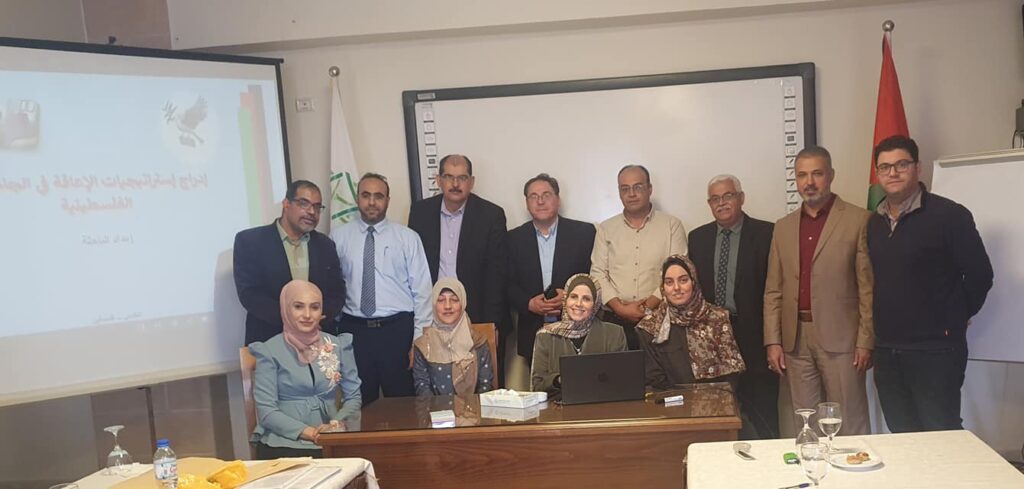
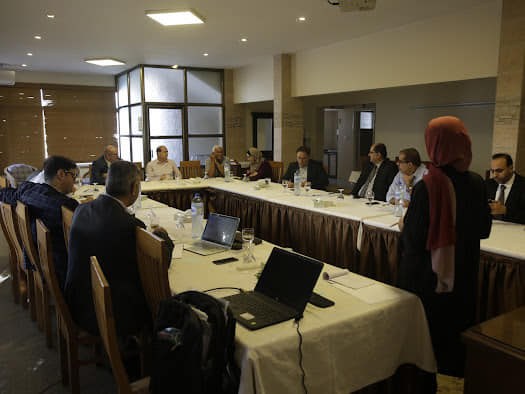
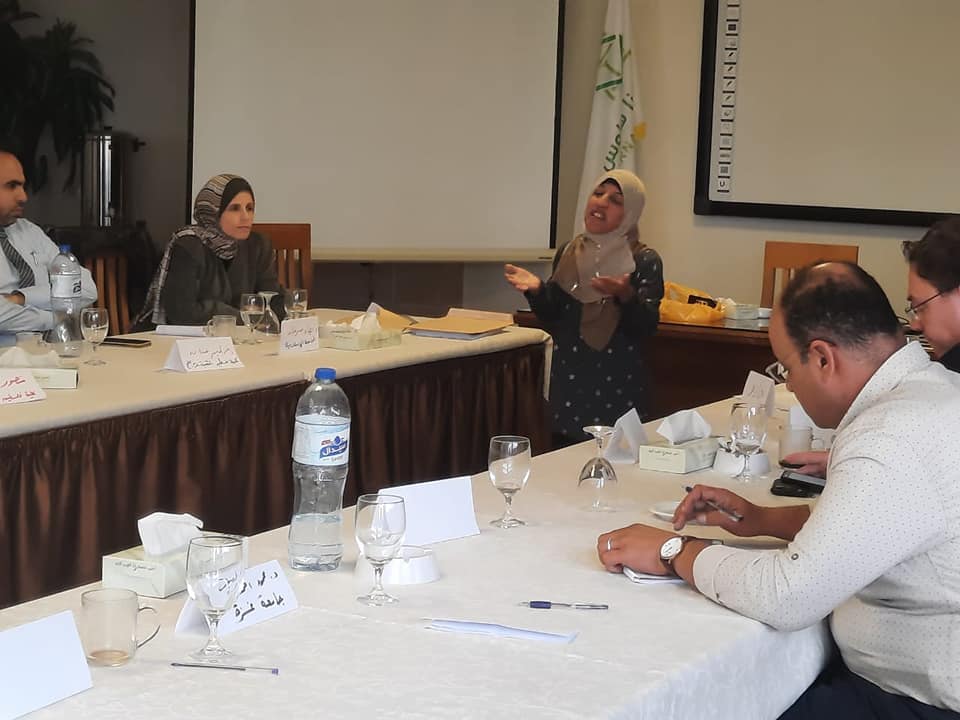


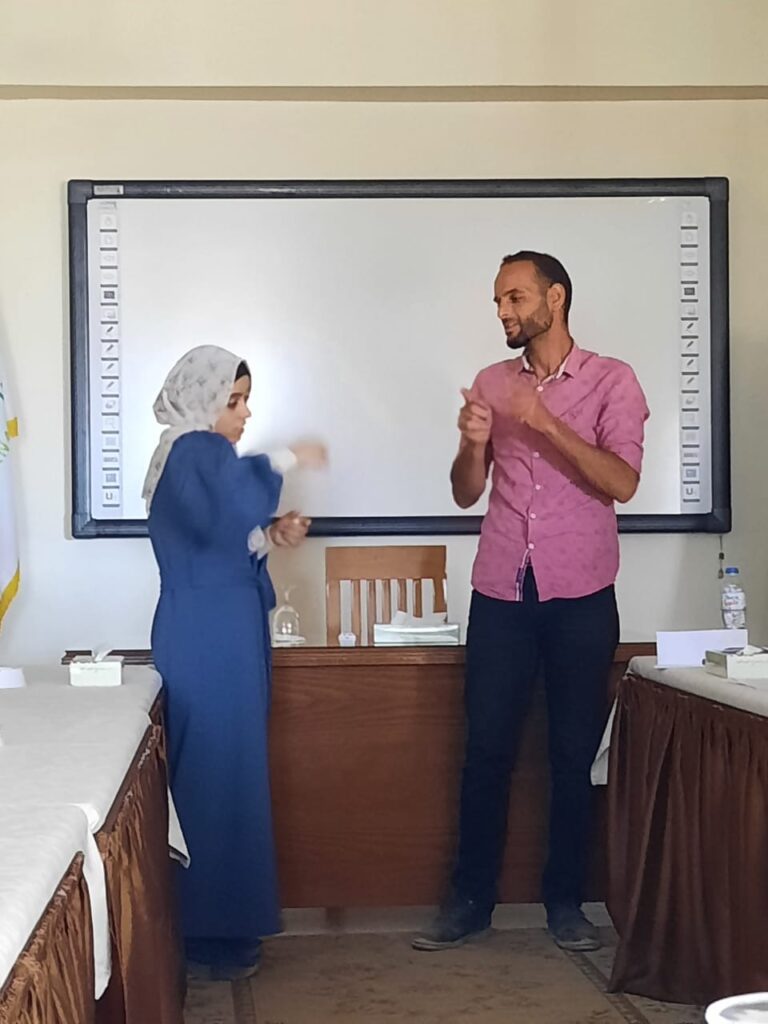
Impact Funding
Emergency Rehabilitation and Immediate Intervention Program for Persons with Disabilities (ERP)
The Emergency Rehabilitation and Immediate Intervention Program (ERP) for Persons with Disabilities was successfully implemented as a short-term training initiative to empower 48 persons with disabilities in the Al Nahda Displacement Center in Deir al-Balah, Gaza Strip (21 males and 27 females), with basic skills to deal with emergencies during war. Over three training days from 16/1/2025 to 5/2/2025, the procurement process was carried out before the start of the practical training, inviting persons with motor disabilities, visual disabilities and hearing disabilities, which was carried out by Dr. Nismah al-Ghoul, a researcher in the project who is a person with disabilities and the head of the Al Nahda Displacement Center. Interactive workshops were implemented over three consecutive days, starting with a pre-assessment, simulation exercises, and case studies focusing on emergency response, daily life management, psychological support, and safety planning, followed by a post-assessment, noting that the training design was tailored to the specific needs of each disability category, ensuring inclusiveness and accessibility. The project provided participants with real-life skills by empowering them with practical skills to deal with the challenges they face in the southern Gaza Strip. Participants gained knowledge in self-protection, time management, and psychological resilience, enabling them to act more independently and confidently in emergency situations. The psychosocial support component helped mitigate the psychological effects of war, and enhance resilience and mutual support when they are within their communities. By empowering persons with disabilities to play an active role in their safety and well-being, the project challenged the stereotype of persons with disabilities as passive recipients of aid, and promoted inclusiveness and self-reliance in this highly vulnerable group. This initiative not only addressed immediate needs, but also laid the foundation for strengthening resilience and long-term empowerment in the Gaza Strip. The trainer, Dr. Saeed Nabhan, a trainer specializing in crises, emergencies, and mental health, participated in the training with Dr. Nismah Al-Ghoul, a researcher in the project who is a person with a disability and the head of the Al-Nahda Displacement Center, and Dr. Bahaa Sarhan, an academic in the field of inclusive education, in cooperation with the research team, Dr. Hazem Shehadeh and Dr. Saeed Awad from Al-Quds University On the third day, a sign language interpreter, Ms. Rania Abu Shriteh, was used. Most participants noted a difference between their pre- and post-training information, indicating that they benefited greatly from the training. Details of the feedback are attached at the end of this report. A video was also uploaded to show the documentation of the activities in the field.
The Emergency Rehabilitation and Immediate Intervention Program for Persons with Disabilities (ERP) project made a tangible difference in several aspects:
a. Impact on policies and services
The project contributed to influencing policies and services by providing a practical model for training persons with disabilities in emergency skills, which could be the basis for developing more inclusive policies in disaster management. In addition, the project increased awareness of the needs of this group in times of crisis, which could lead to improved services provided to them. Finally, the project provided data and recommendations that can be used to support the development of policies that are more responsive to the needs of persons with disabilities.
b. Behavioural change:
Participants were able to develop new skills in dealing with emergencies, such as time management, self-protection, and providing psychological support. This led to a change in their daily behaviors, as they became more prepared and able to act effectively in crises.
c. Enhancing understanding and discussions:
The project contributed to changing the societal perception of persons with disabilities from being mere recipients of aid to active actors capable of contributing to protecting themselves and their communities. The project also sparked discussions on the importance of providing similar trainings to other groups in society.
d. Capacity Building:
Through intensive training, participants’ capacities were built in the areas of emergency response, daily life management, and psychological support. Local trainers’ skills in providing inclusive trainings adapted to the needs of persons with disabilities were also enhanced.
e. Impact on policies and services:
Although the project was not directly focused on policy change, it provided a model that local and international agencies could build on to improve emergency services provided to persons with disabilities in conflict zones.
The project contributed to advancing the organization’s broader goals of promoting the rights of persons with disabilities and their inclusion in society. Through this activity, the following actions were taken:
a. Promote inclusiveness:
The project demonstrated that persons with disabilities can be active actors in their communities, especially in times of crisis.
b. Build partnerships:
Cooperation with local organizations working in the field of disability was strengthened, opening up prospects for future joint projects.
c. Enhance reputation:
The project contributed to enhancing the reputation of the researchers as a leading team in providing innovative and inclusive solutions for persons with disabilities in conflict zones.
We have plans to enhance and expand this project in the future based on the positive results achieved. First, we aim to expand the project to other areas in the Gaza Strip and additional segments of society, such as the elderly and children with disabilities, to ensure greater inclusiveness. Second, we will develop more interactive training tools using assistive technology, such as electronic applications and audio-visual materials, to enhance the participants’ experience and ensure broader access. Third, we will establish a mechanism to follow up with participants to ensure the project’s impact continues and support them in applying what they have learned in their daily lives. Fourth, we will strengthen cooperation with local and international bodies to adopt the project’s recommendations into disaster management policies, which will contribute to improving services provided to persons with disabilities on a broader level. Finally, we will seek to secure additional funding to implement similar projects in other conflict-affected areas, which will enhance the project’s impact and create a lasting legacy of empowering persons with disabilities around the world.
